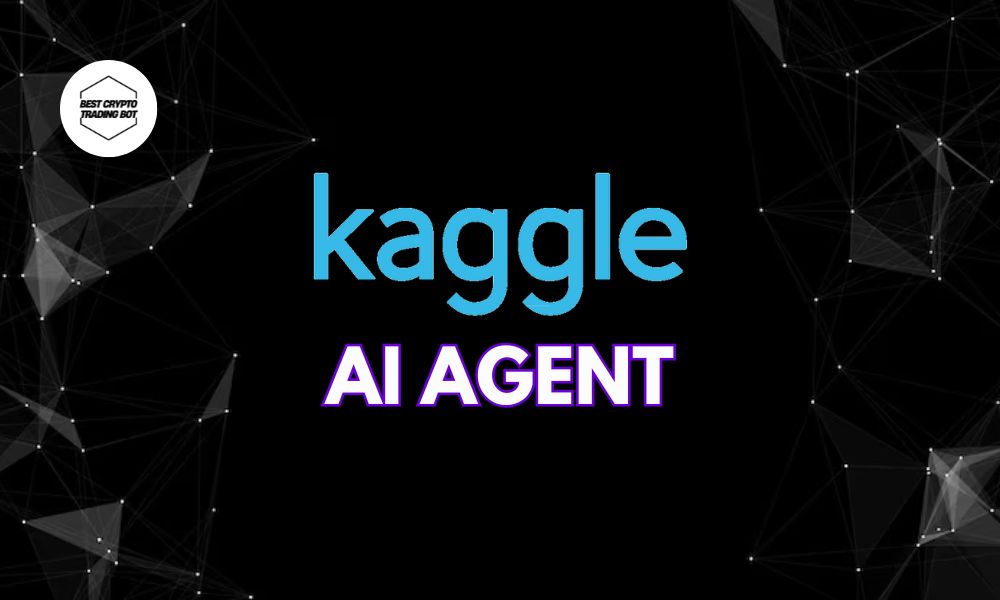
Kaggle AI Agent: Unveiling competitive AI
Kaggle AI Agent is reshaping how we approach artificial intelligence competitions, not just as tools but as formidable opponents, showcasing remarkable advancements in machine learning and deep learning, opening new horizons for applying AI to solve real-world problems autonomously and intelligently.
Contents
Kaggle AI Agent: Unveiling competitive AI
The term Kaggle AI Agent is becoming increasingly popular in the data science and artificial intelligence community. These are not just abstract concepts but concrete AI entities, specifically designed to participate and compete in intricate competitions hosted on the Kaggle platform, a global hub for data science.
This platform brings together millions of data scientists from around the world, fostering a competitive yet collaborative environment. The emergence of such agents marks a significant step forward, clearly demonstrating the evolving machine’s ability to self-learn, adapt, and solve highly complex problems, pushing the boundaries of automated decision-making.
These intelligent systems meticulously analyze vast datasets, identify subtle patterns, and iteratively refine their strategies through reinforcement or supervised learning. This capability allows them to tackle diverse challenges, ranging from advanced image recognition tasks to sophisticated predictive modeling, often driving substantial innovation within the field.
What is Kaggle and why are AI Agents important?
Before delving into the Kaggle AI Agent, we need to understand Kaggle. Kaggle is an online platform where companies and researchers post data and problems to be solved, and the community then builds machine learning models to provide the best solutions. These competitions span various fields, from predicting stock prices, image classification, speech recognition, to even creating AI agents that play games.
In this context, a Kaggle AI Agent is a computer program, an artificial intelligence entity programmed to automatically perform the necessary steps in a Kaggle competition. This includes analyzing data, preprocessing, selecting and training models, optimizing parameters, and finally, making predictions or taking actions as required by the competition. The importance of these AI agents lies in:
- Pushing the boundaries of AI: Developing competitive agents requires creativity and the application of the most advanced AI techniques.
- Automating the data science workflow: These agents can automate many parts of the workflow, saving time and effort for humans.
- Creating a fair and exciting playground: The participation of AI agents increases competitiveness and introduces new challenges, such as competitions where AI directly confronts AI.
How a Kaggle AI Agent works
Building an effective Kaggle AI Agent is a complex process, requiring a combination of expertise in machine learning, programming skills, and strategic thinking. Here are the core components and operational processes:
- Understanding the competition: The agent needs to “read” and understand the rules, objectives, input data format, and output requirements of the competition. This is often encoded into logic and data structures within the agent.
- Data preprocessing: Similar to humans, the agent needs the ability to clean data, handle missing values, normalize or transform data to suit the machine learning model.
- Model selection and training: This is the heart of the agent. Based on the nature of the problem (classification, regression, reinforcement learning), the agent will select appropriate algorithms (e.g., Random Forest, Gradient Boosting, Neural Networks, Deep Reinforcement Learning). The agent will then train the model on the provided training data.
- Evaluation and optimization: The agent needs a mechanism to self-evaluate its model’s performance (e.g., using cross-validation) and automatically adjust hyperparameters to achieve the best results.
- Decision-making logic and action (especially in game competitions): For simulation or game competitions, the agent not only predicts but must also make decisions and take actions in a dynamic environment. This often involves reinforcement learning techniques, where the agent learns through trial and error.
- Submitting results: Finally, the agent automatically formats the prediction results as required and submits them to the Kaggle system for scoring.
Challenges in developing a Kaggle AI Agent
Despite the immense potential, developing a Kaggle AI Agent also faces numerous challenges:
- Problem complexity: Many Kaggle competitions have large, noisy datasets and complex requirements, demanding sophisticated AI models.
- Computational resources: Training modern AI models, especially deep learning, often requires significant hardware resources (GPU, TPU).
- Adaptability: The environment and rules in some competitions can change, requiring the agent to adapt quickly.
- Avoiding overfitting: The agent must be carefully designed not to memorize the training data but to generalize well to new, unseen data.
- The “black box” of AI: Sometimes, understanding why an agent makes a specific decision can be difficult, especially with complex models like deep neural networks.
The Kaggle AI Agent is an impressive step forward, representing the robust development of artificial intelligence. It is a testament to the machine’s ability to learn and solve complex problems. To discover more exciting information about AI and technology, don’t forget to follow Best Crypto Trading Bot!




